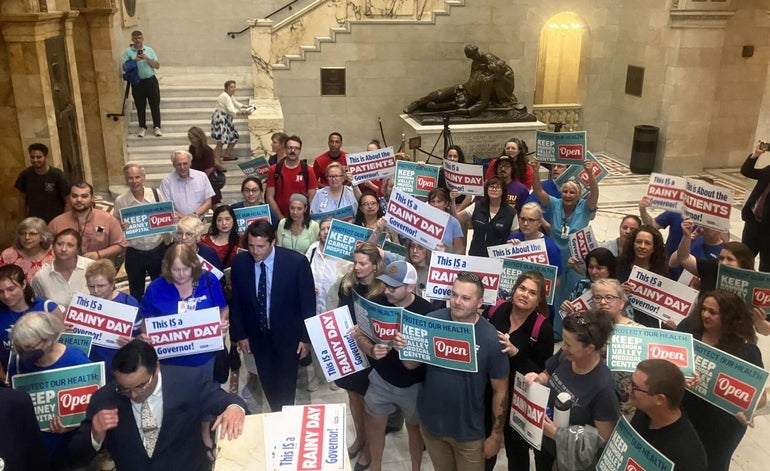As Steward Health Care prepares to make the case in federal court Wednesday that the deals it reached to sell four Massachusetts hospital facilities should be quickly approved, a number of others would like to have a word — including key lenders for the bankrupt company, the Archdiocese of Boston, and the Internal Revenue Service.
The blur of activity includes ongoing negotiations between Steward and Massachusetts state government over a second, and larger, infusion of public funding that the company says is required to keep its hospitals here open until the sales close, possibly on Sept. 30. Massachusetts aided Steward with $30 million to stay afloat in August and now is poised to provide the company another $42 million in payments and advances by the end of this week, according to a court filing late Monday.
An array of objections have been lodged in U.S. Bankruptcy Court since Steward announced the hospital sales. A sale hearing is scheduled for 11 a.m. Wednesday, when Judge Christopher Lopez will weigh whether the deals are the best possible way for the company to wind down operations and maximize the value the assets return for its lenders and creditors. Steward says they are and should be approved.
The court is likely to consider an objection filed by the “first in, last out” or FILO lenders that have pumped hundreds of millions of dollars into Steward as the company headed for bankruptcy. Those lenders said they “cannot possibly consent to the proposed sales of the Massachusetts Hospitals in their current form, and they do not.”
“The Debtors’ sale process has resulted in bids for the Massachusetts Hospitals for an aggregate purchase price of $343 million, subject to certain adjustments … However, this figure is misleading as the entirety of the Purchase Price will be allocated towards the real property and therefore flow to benefit the purported landlord (MPT and Macquarie) and more specifically will flow to the purported landlord’s secured lender,” the FILO lenders wrote in the objection.
The objection from the IRS relates to a section of each asset purchase agreement that says Steward has filed all of its tax returns. The federal government says that isn’t actually the case, echoing the way state government was repeatedly frustrated by Steward’s failure to file financial disclosures.
“The United States states that either the terms of the respective Asset Purchase Agreements should be revised to correctly reflect that certain required federal tax returns for certain of the Seller Debtors have not been filed with the IRS and that the applicable Seller Debtor has a legal obligation to file such tax return,” or the court should require Steward to file the returns in question before the transactions close, the U.S. Department of Justice wrote on behalf of the IRS.
The limited objection from the Archdiocese of Boston stems back to the history of many Steward hospitals as part of the Caritas Christi network. The church said its sale of the hospitals to Steward in 2010 was the best option “that would allow the Hospitals to continue to operate as Catholic health care facilities.”
An agreement between the archdiocese and Steward requires the company to return any and all religious items and remove “all symbols of Catholic identity (e.g. interior signage, trade and service marks associated with Catholic identity in both paper and electronic form) and cease using a list of Catholic-related names.
The church said it would object to the hospital sales “to the extent that the Debtors seek to transfer the Restricted Names or the Religious Items or authorize the buyers to continue to use symbols of Catholic identity,” but added that it appears no such transfer is contemplated. That suggests that there will be new names for St. Elizabeth’s Medical Center, the Holy Family hospitals, St. Anne’s Hospital and Good Samaritan Medical Center, since the church says Steward “acknowledged and agreed that the … names were ‘integrally related’ to the Hospitals’ Catholic identity.”

